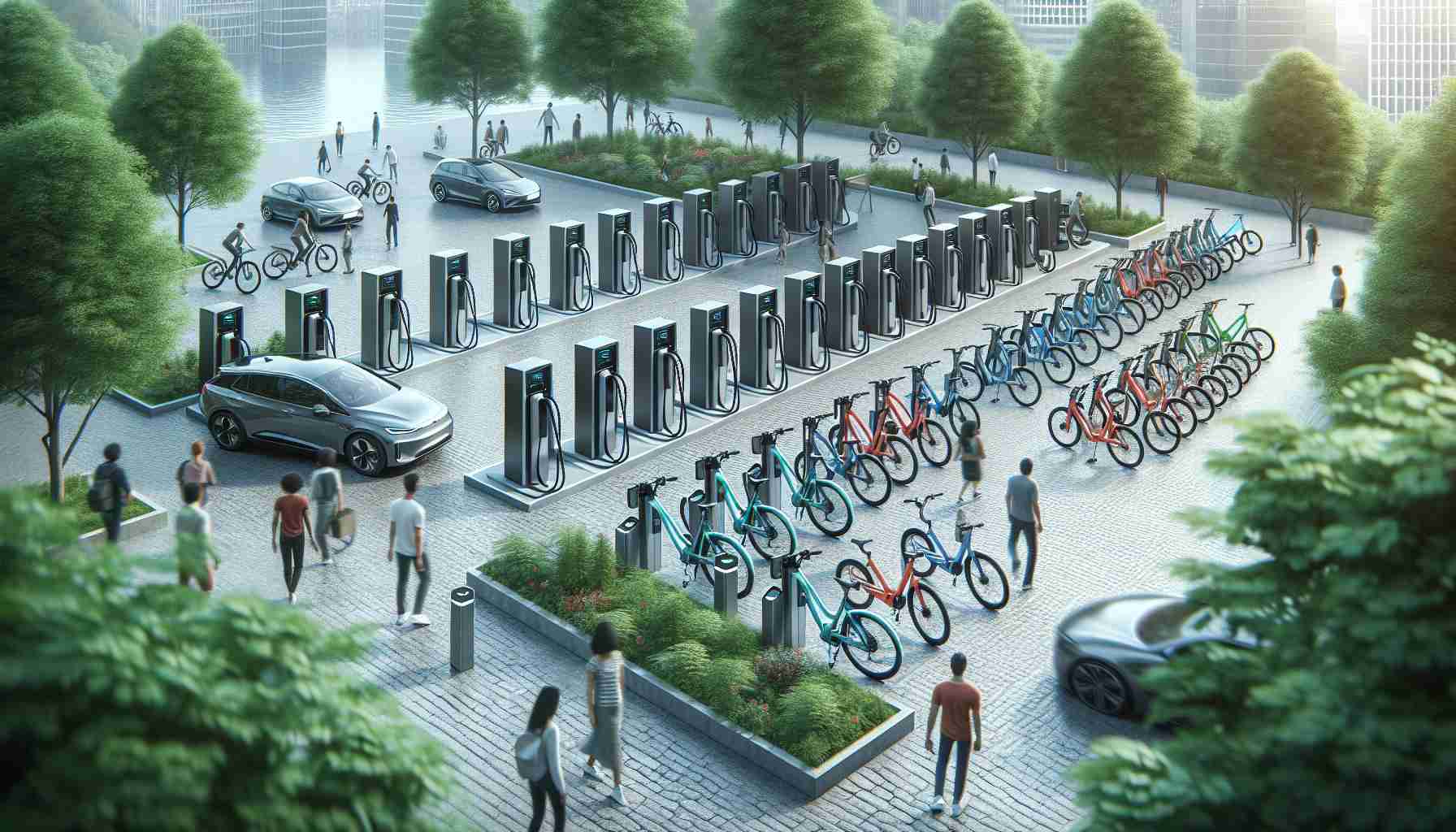The adoption of electric vehicles continues to rise globally, and with it, the need for efficient and reliable charging infrastructure. One crucial aspect of this infrastructure is the development of E-bike charging stations. These stations provide a convenient and accessible solution for E-bike owners to recharge their vehicles, promoting sustainable transportation and reducing carbon emissions.
According to a recent market research study, the E-bike Charging Station market is projected to reach USD 3366.72 million by 2032, with a compound annual growth rate (CAGR) of 3.5%. This growth is attributed to increasing research and development (R&D) spending worldwide, driving innovation and technological advancements in E-bike charging solutions.
The market is seeing the emergence of key players in this space. Companies like GetCharge Inc., LG Chem, Samsung SDI, and Swiftmile are at the forefront of developing cutting-edge E-bike charging station technologies. These companies are focused on creating charging stations that are efficient, user-friendly, and scalable to meet the growing demand of electric bike users.
One of the key drivers for the E-bike charging station market is the increasing demand for sustainable transportation options. As more people recognize the environmental impact of traditional gasoline-powered vehicles, they are turning to electric bikes as a cleaner and greener alternative. E-bike charging stations play a vital role in enabling the widespread adoption of electric bikes by providing a reliable and accessible means of charging.
To meet the diverse needs of E-bike owners, charging stations offer multiple charging levels, including level 1, level 2, and level 3 options. These levels cater to different charging speeds and enable users to choose the one that best suits their requirements.
While the market for E-bike charging stations is poised for significant growth, there are challenges to overcome. One such challenge is the slow mode of charging offered by some stations, which may impact the overall market growth. However, with ongoing advancements in charging technology, it is expected that these challenges will be addressed, leading to more efficient and faster charging solutions.
In conclusion, the rising demand for E-bike charging stations reflects a global shift towards sustainable transportation. These stations provide a reliable and accessible means of recharging electric bikes, promoting cleaner mobility and reducing carbon emissions. As the market continues to grow, it is essential for industry players to innovate and develop advanced charging solutions to meet the evolving needs of electric bike users.
The E-bike Charging Station market is projected to reach USD 3366.72 million by 2032, with a compound annual growth rate (CAGR) of 3.5%. This growth is driven by increasing research and development (R&D) spending worldwide, leading to innovation and technological advancements in E-bike charging solutions.
Companies such as GetCharge Inc., LG Chem, Samsung SDI, and Swiftmile are leading the development of cutting-edge E-bike charging station technologies. These companies are focused on creating efficient, user-friendly, and scalable charging stations to meet the growing demand of electric bike users.
The demand for sustainable transportation options is a key driver for the E-bike charging station market. As more people recognize the environmental impact of traditional gasoline-powered vehicles, they are turning to electric bikes as a cleaner and greener alternative. E-bike charging stations play a vital role in enabling the widespread adoption of electric bikes by providing a reliable and accessible means of charging.
To cater to the diverse needs of E-bike owners, charging stations offer multiple charging levels, including level 1, level 2, and level 3 options. These levels provide different charging speeds, allowing users to choose the one that best suits their requirements.
However, there are challenges to overcome in the market for E-bike charging stations. One such challenge is the slow mode of charging offered by some stations, which may affect the overall market growth. Nevertheless, ongoing advancements in charging technology are expected to address these challenges and lead to more efficient and faster charging solutions.
In conclusion, the increasing demand for E-bike charging stations reflects a global shift towards sustainable transportation. These stations provide a reliable and accessible means of recharging electric bikes, promoting cleaner mobility and reducing carbon emissions. As the market continues to grow, it is crucial for industry players to innovate and develop advanced charging solutions to meet the evolving needs of electric bike users.







